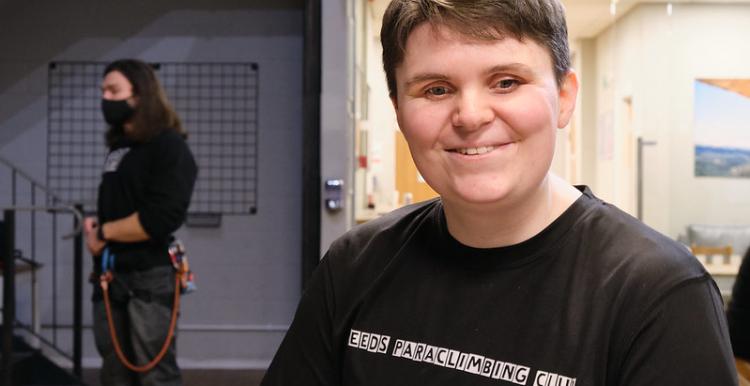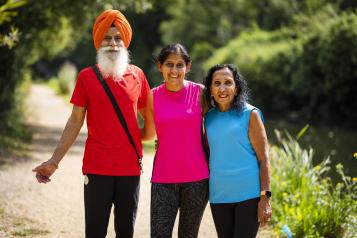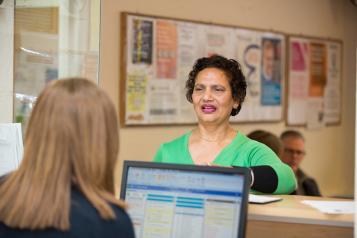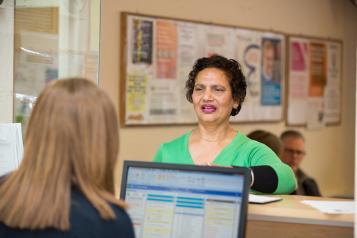Many NHS Trusts not supporting equal access to care for deaf and blind people

People who are blind, deaf or have a learning disability are increasingly being failed by health services that aren’t meeting their communication needs, new research shows.
The failure puts services in breach of their duty under the Accessible Information Standard, a legal requirement created by NHS England in 2016.
The standard requires that all publicly funded health and social care providers identify, record, flag, share and meet the information and communication needs of those who use their services, to ensure equal access to healthcare.
However, evidence gathered by Healthwatch England shows that this legal duty is being significantly compromised and that its implementation has been patchy.
What did NHS trusts tell us?
Of the 139 NHS trusts that responded to our Freedom of Information (FOI) request, only a third (35%) said they fully complied with the standard.
This means that a vast majority of health services are failing to put the standard into practice by asking for people’s communications needs, recording them and sharing with other services:
- Just over a half (53%) of trusts reported they ask patients about their communication needs and what support they need at first contact.
- A quarter (26%) of NHS services didn’t record people’s communication needs on their patient file or only do this some of the time.
- Only 57% of the trusts said staff routinely share patients’ communication needs with other health and care services.
Some trusts admitted that low staff awareness of accessible communication, constrained resources and a lack of IT systems that would allow them to record patients’ communication needs prevented them from putting the right arrangements in place.
Healthwatch England issued the FOI requests to 220 NHS providers, including acute and ambulance trusts, to find how they are delivering the Accessible Information Standard. This follows a significant surge of 141% in public concerns related to healthcare information during the first year of the pandemic, compared with the same time period pre-pandemic.
What has the public told Healthwatch England?
A separate review published today of 6,200 people’s experiences shared with Healthwatch between April 2019 and September 2021 showed:
- Changes to services that took place during the pandemic were especially acute for people who are blind, deaf or have a learning disability, with many reporting that they stopped getting information from the NHS in the formats they had been.
- Deaf people were unable to lipread what staff at hospital were saying because of the widespread use of facemasks.
- One blind person was given paper forms to order a white cane and deaf people were asked to book GP appointments over the phone.
- Some services didn’t have basic support in place or were unwilling to provide the help people are entitled to. Examples included dental practices not getting hearing induction loops installed or GPs refusing people access to a sign language interpreter.
- Incidents of low staff awareness meant people felt intimidated at GP appointments, with some deaf people reporting that staff were trying to communicate with them by shouting.
- When people were not given communication support, they had to rely on family and friends. This made them feel less independent and forced to share sensitive health information with family members. Some people reported losing income because they had to take time off work to support their family members at medical appointments.
I feel forgotten, ignored and not taken seriously
Connor is currently studying for a masters in social and public policy in Leeds. He is blind and requires healthcare information in an electronic format as well as in Braille.
Sharing his experience Connor said:
“Trying to get information about my own healthcare, in a format I can understand, has often been difficult. I can’t read letters that come through the post, or prescription medications.” After moving to Leeds, he wanted to register with his local GP practice, but wasn’t provided with a form that he could fully access.
“I feel forgotten, ignored, and not taken seriously. All I’m asking for is consistency, training on accessible information for staff - a few minor changes would make the world of difference to people like myself. I want to be able to take responsibility for myself, and good accessibility gives me the choice and freedom to do that. When it’s accessible, there’s nothing I can’t do.”
Need for greater accountability
Healthwatch England have warned that no one is currently fulfilling their responsibility for holding health and care services to account for breaching their legal duty to support patients who have additional communication needs.
With NHS England currently reviewing the Accessible Information Standard, we have joined forces with leading disability organisations, including RNIB, RNID, Mencap and SignHealth, in calling for stronger accountability in its implementation.
How can we fix the issues?
Healthwatch are asking the Government and health and care services to take five steps.
To make sure that more people with a disability, impairment or sensory loss are given information in the way they can understand, we are calling for:
-
Health and care services to be made more accountable for delivering the standard.
-
Every health and care service to have an accessibility champion.
-
Better IT systems so you can tell services your support needs.
-
People with communication needs to be involved in designing better services.
-
Compulsory accessibility training for NHS staff.


